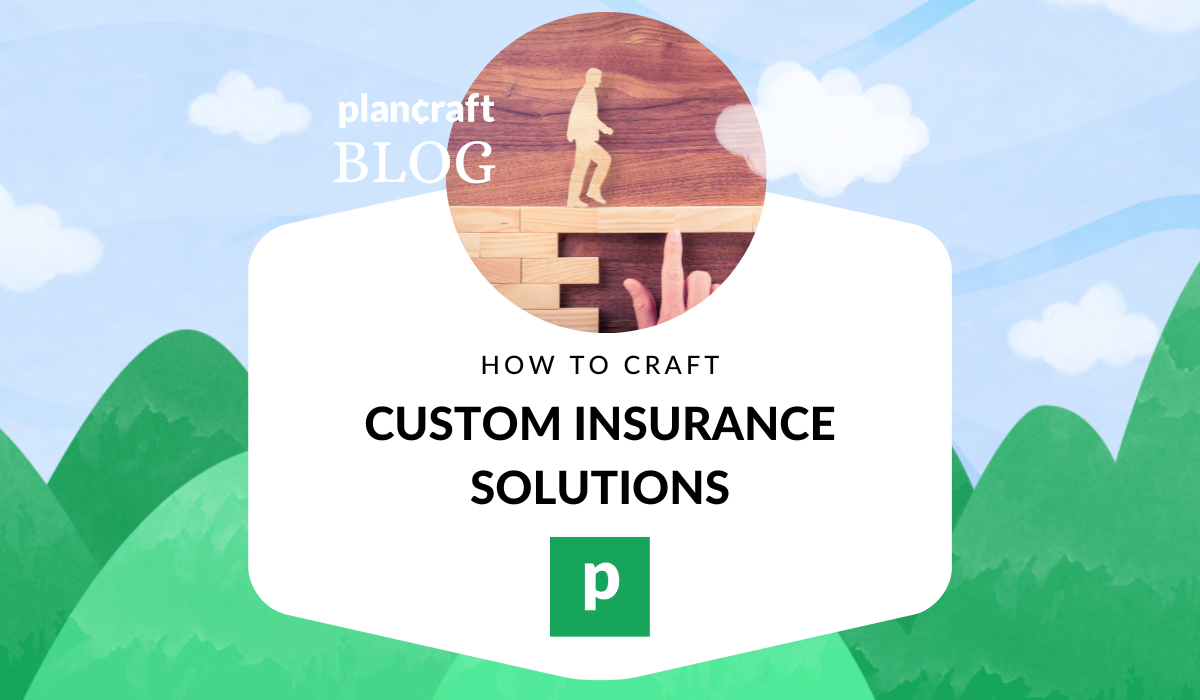Is life insurance worth it? That's a question many clients ask. As insurance agents, especially those selling life insurance from home, it's our job to showcase the value of our insurance products. But how can we effectively communicate that value?
The pros and cons of life insurance vary for each individual. Tailoring our approach to each client is more than just a good idea—it's essential. The bottom line? Customized insurance solutions provide the best financial security. By understanding the unique needs of each client, we can offer the most fitting coverage and reinforce the importance of insurance in their lives.
The Importance of Customization When Selling Insurance
When selling insurance, one of the most frequently asked questions we encounter is, "Which types of life insurance are right for me?" The answer isn't always straightforward. With a myriad of options available, what works for one client may not be suitable for another. That's where customization becomes vital.
The long term success of an insurance agent is not just about selling a policy. It's about ensuring clients buy life insurance that genuinely meets their needs. By tailoring solutions, we address specific concerns and desires, which goes a long way in building trust.
The insurance industry is ever-evolving, with new products and trends emerging regularly. As professionals, it's our duty to sift through these options, understand the nuances of different types of life insurance, and offer guidance. Only by doing this can we effectively address clients' frequently asked questions and provide them with peace of mind.
Tailoring Insurance Solutions to Clients’ Needs
Successfully guiding a client to the right insurance policy involves several essential steps. Especially for those who sell insurance from home, honing these skills is crucial to provide quality service.
Client Discovery and Consultation
- Before diving into the different life insurance plans, it's crucial to understand your client. Initial meetings are more than just introductions; they're about establishing a solid foundation of trust.
- Ask pertinent questions to gauge their financial goals, risk tolerance, and family needs. This groundwork is essential for recommending the appropriate type of insurance later.
Comprehensive Risk Assessment
- Every client has a unique risk profile. It could be related to their health, financial obligations, or future plans.
- Evaluate potential life events or financial shifts that might affect their coverage. For instance, will they benefit more from term life insurance or universal life insurance based on their future outlook?
Research and Comparison
- Now that you have a grasp on their needs, it's time to delve deep into the various life insurance plans. For those selling insurance from home, leverage online platforms and digital tools to compare offerings.
- Analyze the life insurance premiums, policy flexibility, and other features. It's about finding the best match, not just any match.
Crafting a Tailored Solution
- With the gathered insights, collaborate with underwriters or liaise with insurance providers to customize a plan.
- Consider any add-ons or riders that might enhance the coverage. For example, if a client is concerned about future flexibility, a universal life insurance might offer a solution with its adjustable premiums and savings component.
Effective Communication is Key
Even the most tailored insurance solutions can fall flat if not communicated effectively. For independent agents, the challenge is twofold: they often juggle roles of consultant, educator, and salesperson, all while fostering trust with clients.
Educating Clients
- Not every client comes with a deep understanding of insurance terms or the intricacies of various policies. As agents, it's our duty to educate. Break down the complexities of different insurance carriers' offerings in simple, relatable terms.
- Discuss aspects like final expenses, which may be a key concern for many, and explain how certain policies can alleviate those worries.
Visual Aids
- A picture is worth a thousand words. Use charts, graphs, and tables to illustrate points, especially when comparing policy features or explaining premium structures.
- Visual aids can be particularly helpful in online consultations, bridging the gap for those who sell insurance remotely.
Open Feedback Channels
- Great customer service is about listening as much as it's about informing. Always encourage clients to voice their concerns, questions, or feedback.
- Being receptive to their queries not only builds trust but also gives agents a better understanding of areas that might need more clarity.
Collaboration with Insurance Carriers
- Independent agents often liaise with multiple insurance carriers. Building strong relationships with these carriers ensures that you're up-to-date with the latest offerings and can negotiate better terms for your clients when needed.
Monitor Continuously & Update Coverage
The insurance landscape is not static. Clients' lives change, financial situations evolve, and even life insurance companies adjust their offerings. Ensuring that a client's life insurance coverage remains optimal requires continuous attention and periodic updates.
Annual or Biannual Reviews
- Just as a car needs regular check-ups, so does a life insurance policy. Establish a routine, be it annually or biannually, to review a client's current situation. Have there been any significant life changes? Have their financial goals shifted?
- During these reviews, check on premium payments. Ensure clients are keeping up and address any concerns they might have.
Reacting to Major Life Events
- Life's big moments, from marriages and births to buying a new home or starting a business, can have profound impacts on insurance needs. Being proactive and reaching out to clients during these times can ensure their coverage remains adequate.
- Remember, as life unfolds, the initial life insurance coverage might no longer be the best fit.
Stay Updated with Life Insurance Companies
- Life insurance companies often roll out new products or modify existing ones. Keeping abreast of these changes ensures you can recommend the latest and most relevant policies to clients.
- Regularly attend webinars, workshops, or training sessions offered by insurance carriers. This not only keeps you informed but also strengthens your relationship with these companies.
Feedback and Adjustments
- Encourage clients to reach out if they feel their coverage isn't serving their needs. Their feedback can be invaluable in making necessary adjustments to policies.
- Being responsive and willing to adapt demonstrates commitment to their long-term well-being and financial security.
Customization is Crucial
Crafting custom insurance solutions, whether for life insurance or even auto insurance, is about more than just making a sale. It's about building relationships, understanding clients deeply, and continually adapting to their changing circumstances.
As the insurance landscape evolves, so too must our approach. By placing the emphasis on tailored solutions and open communication, agents can ensure that their clients not only have the best possible coverage but also feel valued and understood.
In the end, the most successful agents are those who view their role not just as sellers, but as trusted advisors guiding clients through the complexities of insurance.








-3.png)
